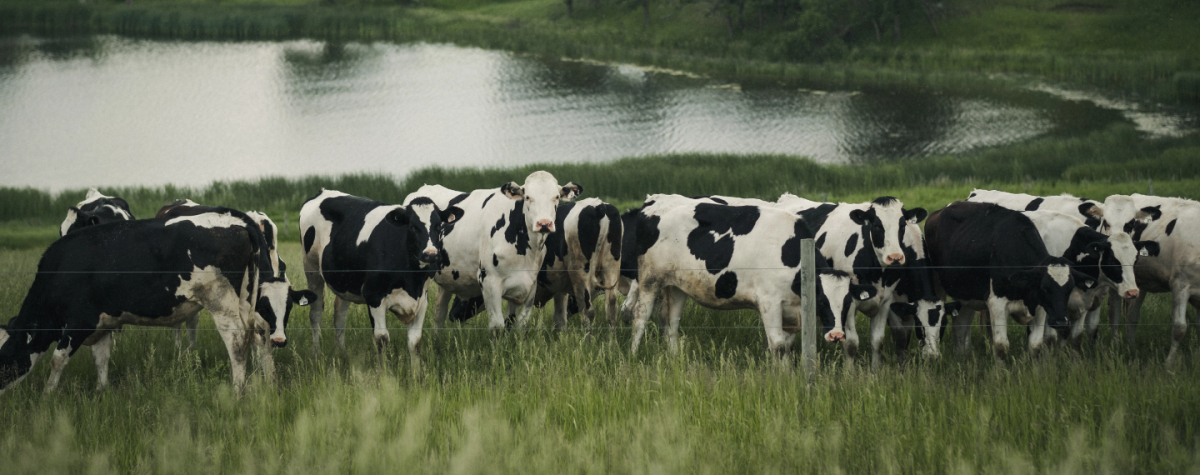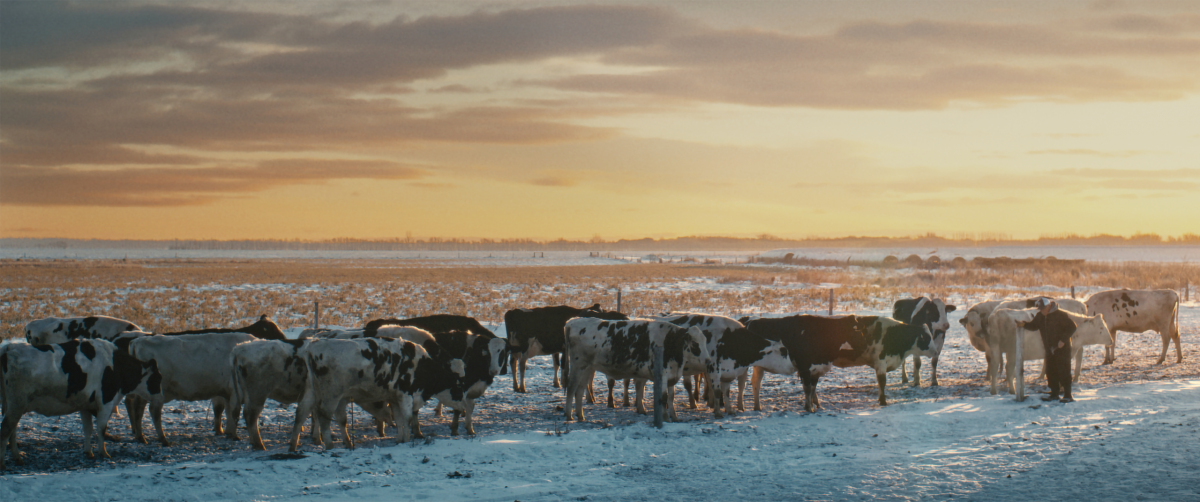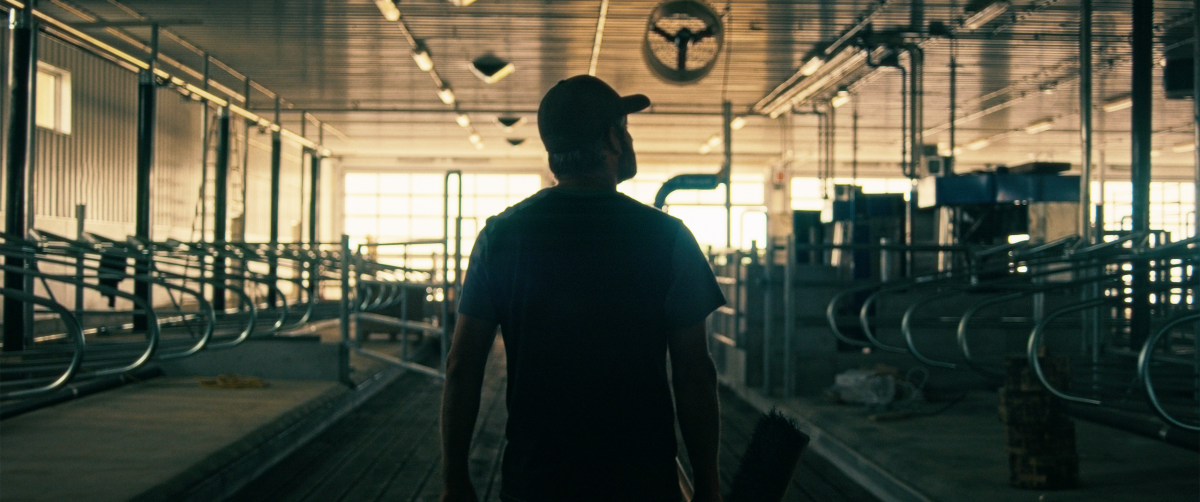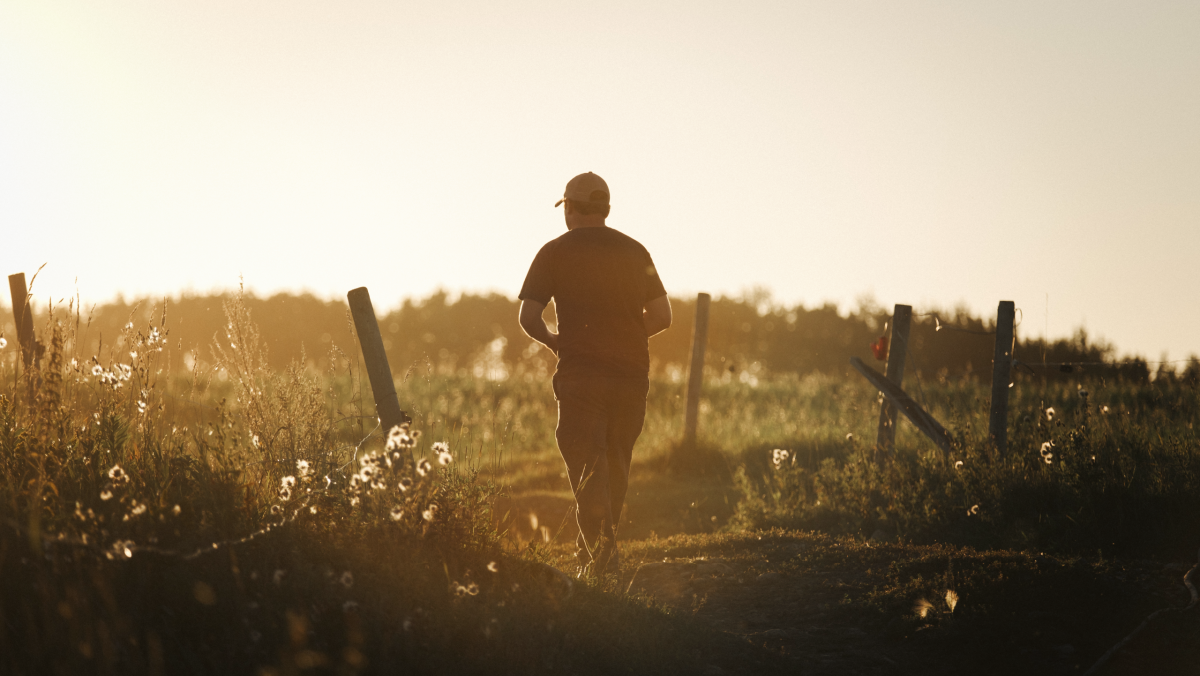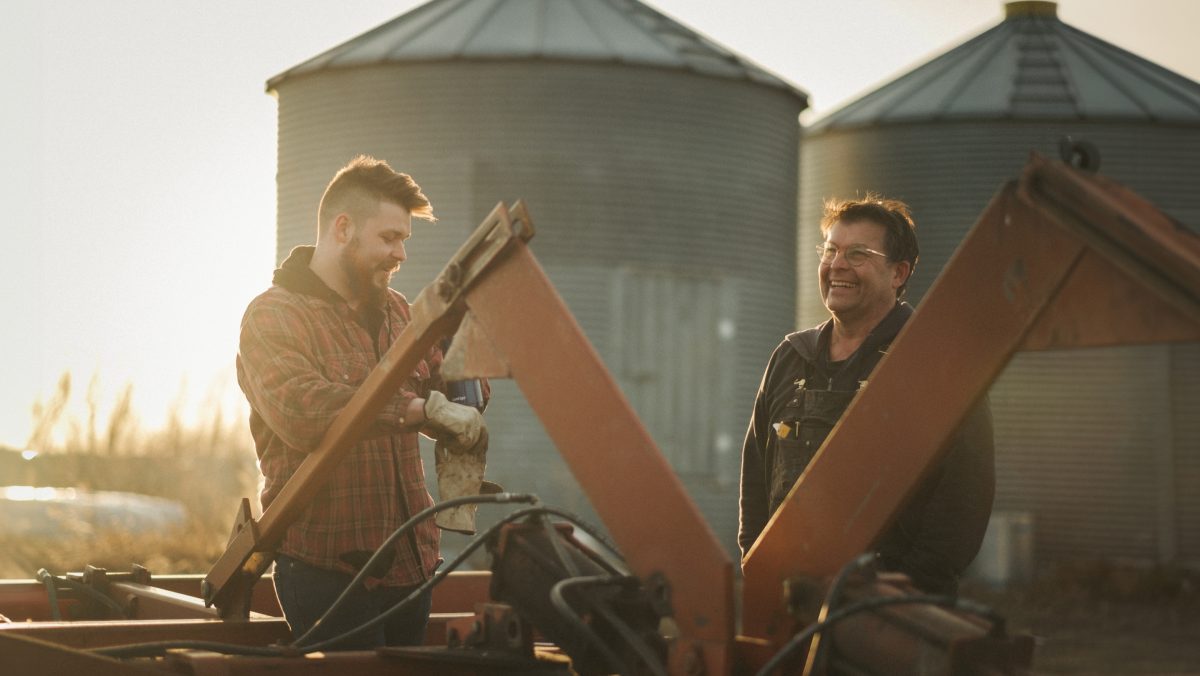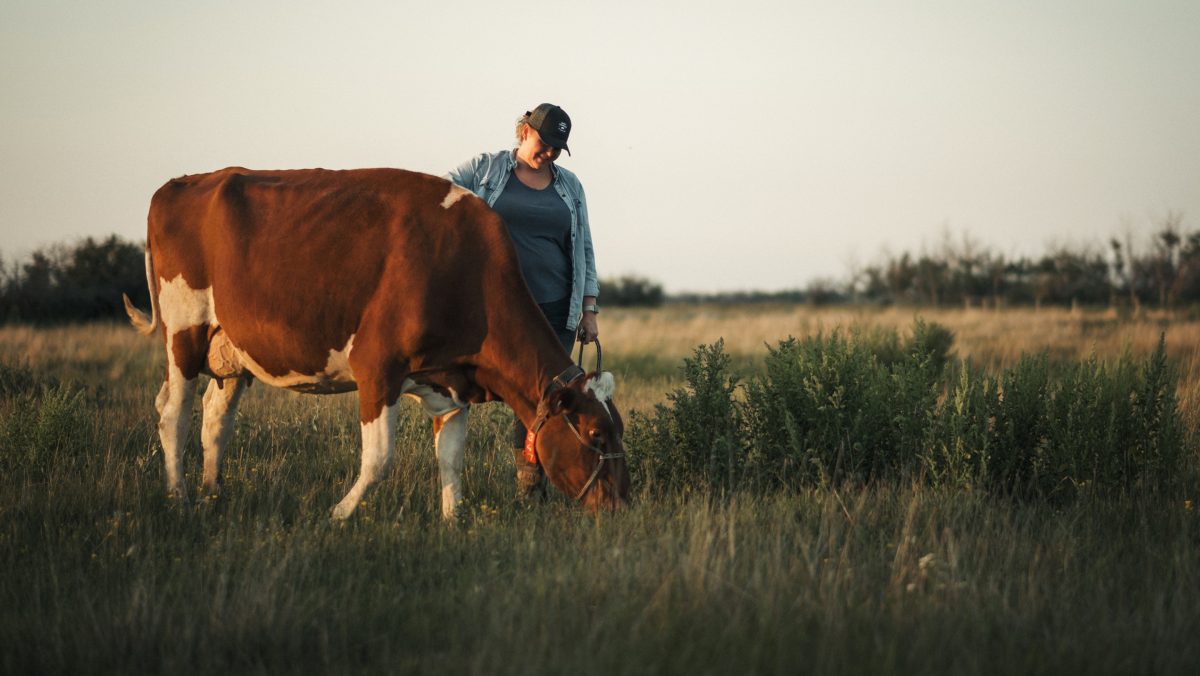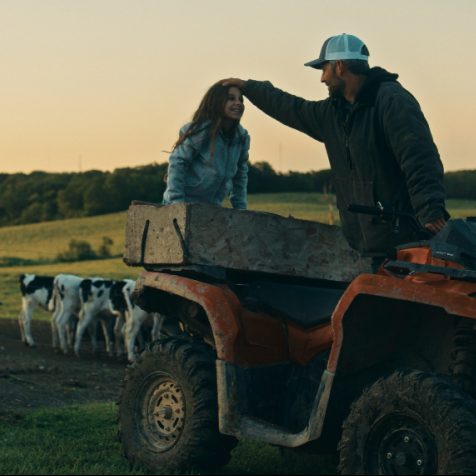
Archives: Stories

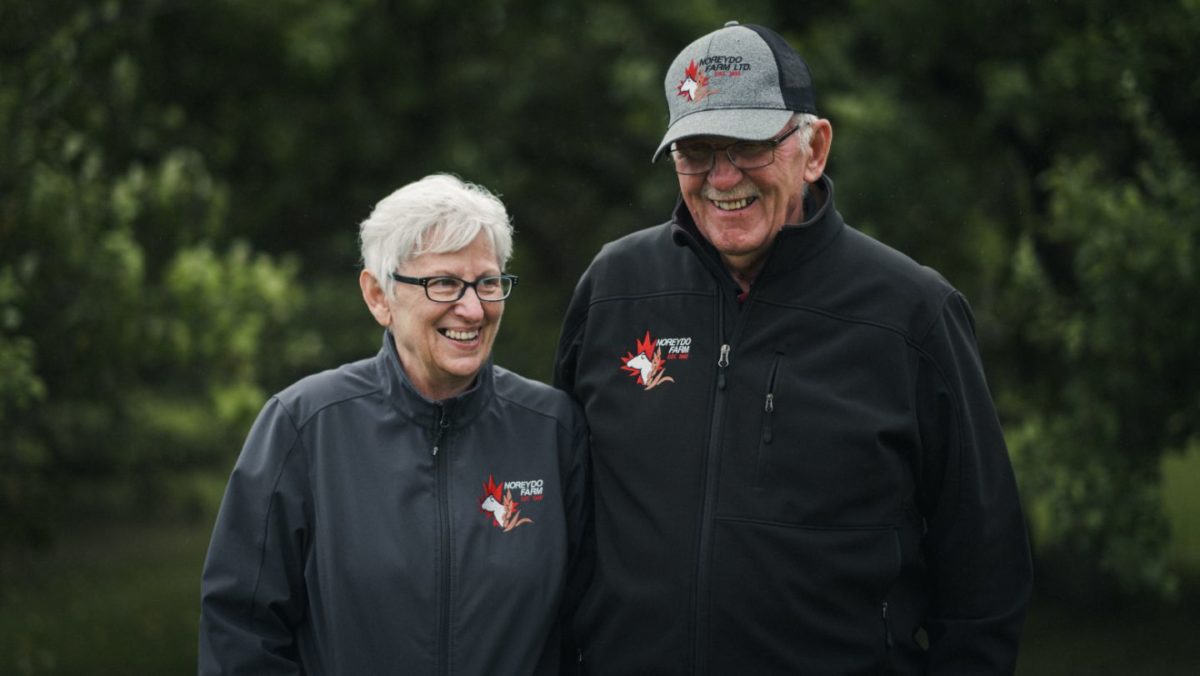
Alongside his seven siblings, Norbert Rey was raised on a family farm in St. Claude, Manitoba. His father had been raised in an orphanage since the age of 9 and working on a dairy farm for room and board before moving to St. Claude where he met and settled with Norbert’s mother. “I had an uncle there who owned the Portage creamery in Portage la Prairie for a number of years,” Norbert explains, furthering the context of his dairy farming lineage.
In 1978, Norbert married his wife Donna, and two years later, they built their first dairy barn together and created what is now known as Noreydo Dairy Farm. The name was born out of a combination of the names Norbert, Donna, and Rey.
“We milked 17 cows for our first milking in November when our firstborn, Kevin, was 9 months old,” says Norbert. Their other children – Krista, Ryan, and Shari – were born in 1981, 1986, and 1989. As the kids grew older, they began to help on the farm alongside their after-school involvements with hockey and music. “Over the years, whenever Donna and I would be milking, the kids would play in the middle of the barn. We made a ‘playpen’ with hay bales.”
Over the years, Norbert and Donna increased their herd to 50 cows, and then worked with their sons, Kevin and Ryan, to continue to grow their farm. “In 2010, we added a new barn and milk house. Presently, we milk 90-100 cows and crop 1,000 acres plus rented land. We do this with one employee and family help.”
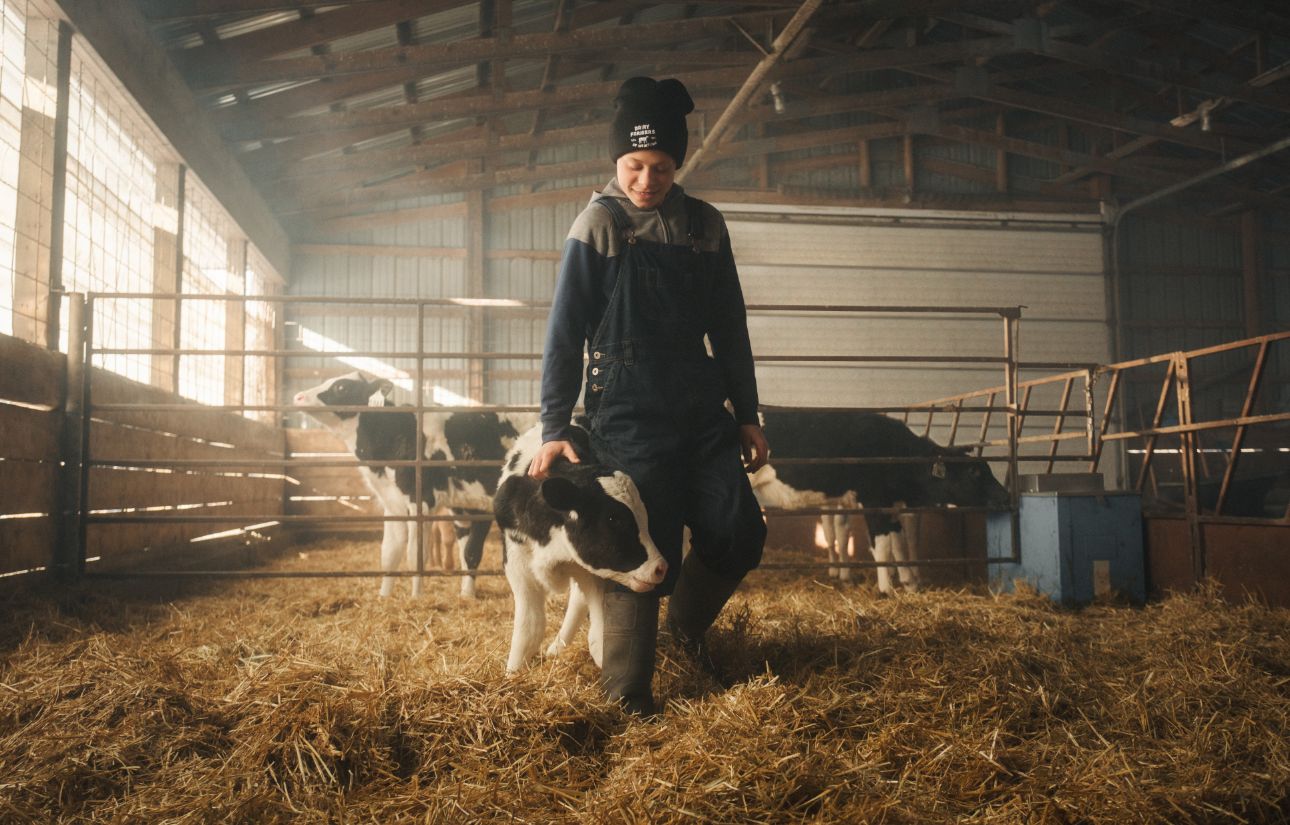
“The children learn how to work
and be responsible. They can see
the results of their work, but they
also learn they can have fun too.”
Their son Kevin and his wife Lisa now have 3 children—Owen, Kali, and Liam. They help with milking, feeding calves, yard work, and any other farm chores. Ryan and his wife Micheline have 3 children as well—Eli, Taryn, and little Sadie. “They also help around the barn by feeding calves and whatever other chores they can manage,” Norbert explains proudly. “And when they’re not helping here, Owen, Kali, and Liam are involved in hockey. While Eli and Taryn play hockey and baseball.”
In Norbert’s eyes, working on a dairy farm at a young age is an important asset. “They can take what they learn wherever they go and apply it to whatever they want to do. When my kids were small, they would come in the tractor or the combine with me, now the grandkids do. We would sometimes have meals together in the field, something we still do, with the grandkids and everyone! The children learn how to work and be responsible. They can see the results of their work, but they also learn they can have fun too. All in all, a dairy farm is a good place to raise a family!”
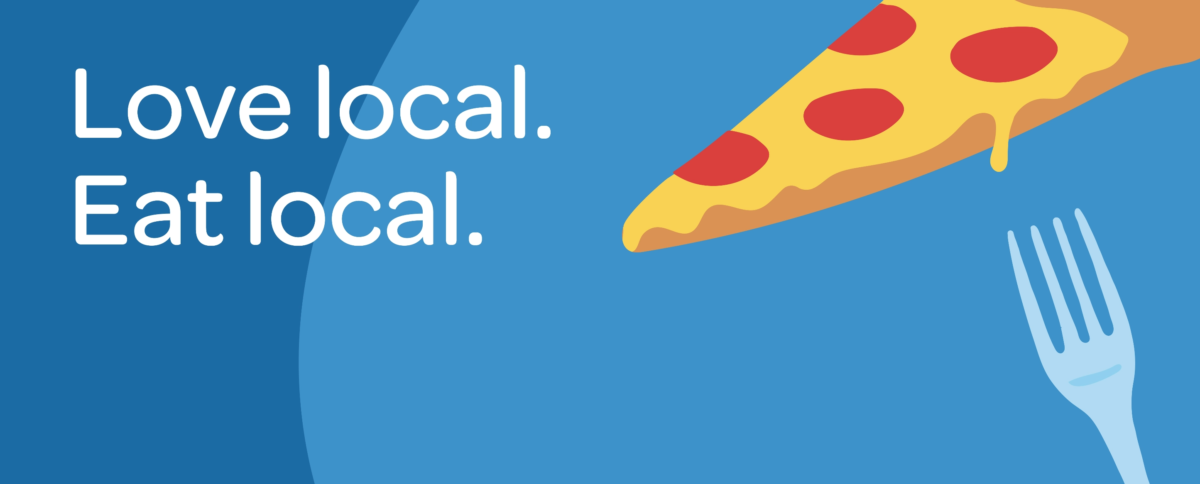
Dairy Farmers of Manitoba is proud to support the local restaurants we all love.
Local restaurants have been there for us, now we’re here for them.
Local restaurants are small businesses that have helped shape the communities they serve. From birthdays and anniversaries to date-nights and game-nights, local restaurants have always been there for us – and now it’s time for all of us to be there for them.
To show our support, we’re helping to promote them! Working with each restaurant, we’re creating custom advertisements and donating media space so more people can learn about these amazing local food hangouts.
And remember to keep an eye on our social media because we’re teaming up with local influencers to host exciting gift card giveaways so Manitobans can eat at their favourite local restaurants or try something new!
It’s a plan that’s as simple as it is delicious. So let’s all come to the table, and make a difference to the local restaurants that make Manitoba so special.
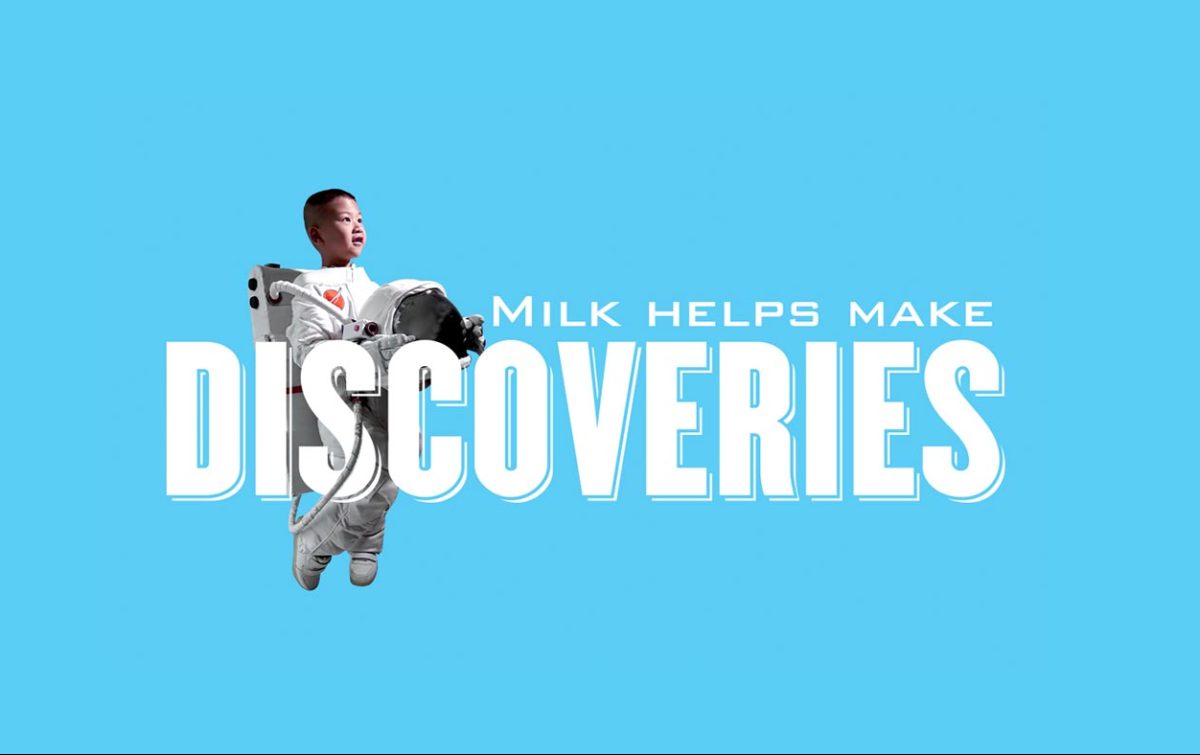
We’re proud to announce our new campaign: Milk Helps Make You.
We know that milk contains calcium and protein that are key for growth, development, and energy. Our campaign explores the many different ways milk helps people achieve greatness in whatever they’re doing!
We’re also excited to announce the launch of our new social channels, it’s the perfect way for you to stay in the loop! Follow us on Facebook, Twitter, and Instagram for fun content and tasty recipes!
